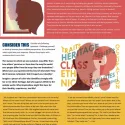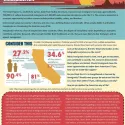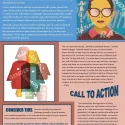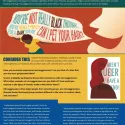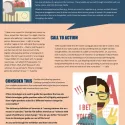Concept Cards
There are six “concept cards” available to you. Each concept card focuses on a single word or phrase. These match the vocabulary word bank from Activity 1D.
Have students read through one concept card to gain additional understanding of the meaning or background of the featured word or phrase. Instruct students to either:
- Find a set number of narratives that connect to the featured word or phrase, or
- Engage with pre-selected narratives, for example, choosing among:
- Criminal in|justice: Darby, Samantha, Dominick, Terrance, Nikki
- Discrimination: Joseph, Alia, Vicki, Terrance, Sylvia, Jamal
- Identity: KC, Lisa, Jeremy, Andree, Mark, Lisa
- Me Too: Jennifer, Andrew, April, Alice, Heather, KC
- Immigration: Yousuf & Fauzia, Sandra, Maritza, Lisa, Juzlia, Jamal
- Intersectionality: Amor, D-Skyy, Sylvia, Paola, Fauziz & Yousuf, Funmi
- Microaggression: Audrey, Ed, Maryam, Funmi, Darby, Nikki
- Stereotypes: Suzanne, Jamal, Mark, Yousuf & Fauzia, Ed
Note that the connections between concepts and narratives are sometimes made only in audio clips, not in the written narratives. This activity thus works best where you encourage students to listen to the audio clips associated with each narrative. Audio clips for the original concept cards are linked above. Visit the audio clip repository for In|Dignity for a wider selection. Note that audio clips are listed by participant number, not name.
Following the activity, ask students to engage in a thinking routine to reflect on the experience. They can use the sentence stems:
- I used to think …
- But now, I think …
Students can share their responses, and explain how their thinking has changed or remained the same. If students are familiar with this sort of reflection, they may work in pairs or small groups. Encourage students to also consider how the individuals united through this word or phrase may seem to have little in common, on the surface, and yet their common experiences unite them together.
Adapted from Ron Ritchheart’s “I used to think … But now I think …” available online.


